Learn More About ISCB's Communities of Special Interest (COSIs)
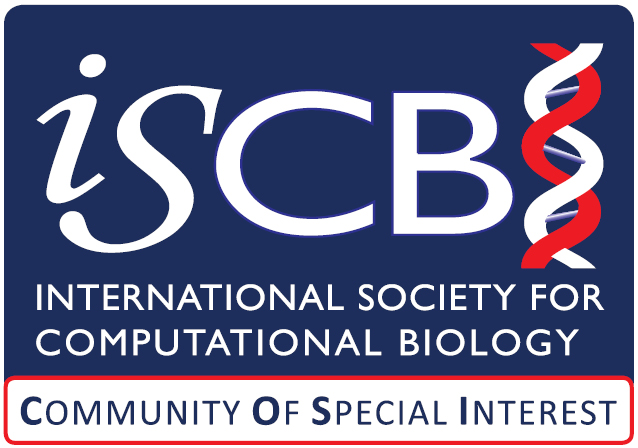
ISCB Communities of Special Interest (COSIs) are member communities of shared interest that have self-organized and have multiple activities or interactions throughout the year, rather than solely meeting during the ISMB conference in the COSI track. An important goal of any COSI is to foster a topically-focused collaborative community wherein scientists communicate with one another on research problems and/or opportunities in specific areas of computational biology. Such communication is often in the form of meetings, but can also be through other social media tools that allow for vibrant participation in a virtual environment. If you are interested in starting an ISCB COSI please send your exploratory questions to Diane E. Kovats, ISCB Executive Director (This email address is being protected from spambots. You need JavaScript enabled to view it.).
The following COSIs are apart of ISMB 2018:
3DSIG: Structural Bioinformatics and Computational Biophysics
Bio-Ontologies
BioVis: Biological Data Visualization
CAMDA: Critical Assessment of Massive Data Analysis
Education: Computational Biology Education
Evolution and Comparative Genomics
Function: Protein Function Annotation
HitSeq: High-throughput Sequencing
MICROBIOME
MLCSB: Machine Learning in Computational and Systems Biology
NetBio: Network Biology
RegSys: Regulatory and Systems Genomics
RNA: Computational RNA Biology
SysMod: Computational Modeling of Biological Systems
TransMed: Translational Medical Informatics
VarI: Variant Interpretation
3DSIG: Structural Bioinformatics and Computational Biophysics
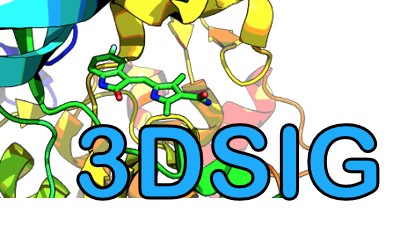
3DSIG is the go to event in structural bioinformatics and computational biophysics. It is impossible to fully understand biological systems without understanding the 3D structure of their constituting parts and their interactions. As such the topics relevant for 3DSIG are wide and include, but are not restricted to Structure-based drug discovery including polypharmacology and network pharmacology; Structure representation, classification and prediction; Structure-based function prediction; Docking, analysis, prediction and simulation of biomolecular interactions such as protein-protein, protein-ligand and protein-nucleic-acid; Protein dynamics and disorder; Evolution studied through structures; Application of structure to systems biology; Macromolecular assemblies; Structural genomics; 3D databases and data mining; Molecular visualization; Relevant methods of structure determination particularly hybrid methods; Prediction and analysis of protein domains; Membrane protein structure analysis and prediction; The structural basis of immunology.
Bio-Ontologies
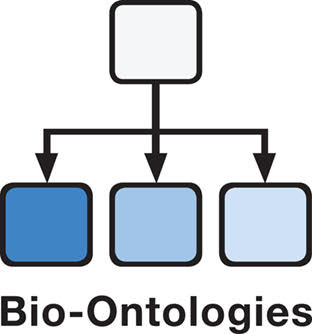
Bio-Ontologies Community of Special Interest Group (COSI) covers the latest and most innovative research in the application of ontologies and more generally the organisation, presentation and dissemination of knowledge in biomedicine and the life sciences. Bio-Ontologies provides a vibrant environment for reporting novel methods and sharing experiences on the construction and application of ontologies in health care and the life sciences. The informal nature of the COSI offers a constructive environment to nurture discussion of innovative and scientifically sound work that range from preliminary to completed, from both young and experienced investigators alike. Bio-Ontologies participants also benefit from a strongly interdisciplinary setting, where ISMB attendees intermingle with members from American Medical Informatics Association (AMIA) and the W3C’s Healthcare and Life Sciences interest group (HCLSIG), thereby increasing impact through broader dissemination and enabling new and exceptional collaborations.
BioVis: Biological Data Visualization
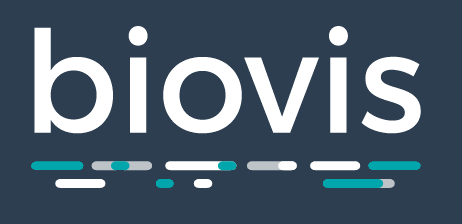
The BioVis track aims to educate, inspire, and engage bioinformatics and biology researchers in state-of-the-art visualization research and visualization researchers in problems in biological data visualization. The rapid adoption of data-intensive biology approaches creates enormous challenges for computational visualization techniques, which are needed to enable researchers to gain insight from their large and highly complex data sets. The goal of this session is to bring together researchers from the visualization, bioinformatics, and biology communities with the purpose of educating, inspiring, and engaging bioinformatics and biology researchers in state-of-the-art visualization research, as well as visualization researchers in problems in biological data visualization.
Keywords: Visualisation, Visual Analytics, Education
CAMDA: Critical Assessment of Massive Data Analysis
 The CAMDA track highlights and compares the latest methods and results in an international data analysis contest, with this year's topics including: (1) a meta-genomics forensic challenge in constructing urban microbiome fingerprints and identifying the geographical origin of mystery samples (MetaSUB), 2) a CMap drug safety challenge in comparing / integrating responses of multiple cell lines for predicting drug induced liver injury in humans (FDA), and 3) a cancer data-integration challenge in demonstrating a robust analysis approach improving the state of the art for multiple cancer types (FDA SEQC / Metabric)
The CAMDA track highlights and compares the latest methods and results in an international data analysis contest, with this year's topics including: (1) a meta-genomics forensic challenge in constructing urban microbiome fingerprints and identifying the geographical origin of mystery samples (MetaSUB), 2) a CMap drug safety challenge in comparing / integrating responses of multiple cell lines for predicting drug induced liver injury in humans (FDA), and 3) a cancer data-integration challenge in demonstrating a robust analysis approach improving the state of the art for multiple cancer types (FDA SEQC / Metabric)
CompMS: Computational Mass Spectrometry

COSI CompMS promotes the efficient, high-quality analysis of mass spectrometry data through dissemination and training in existing approaches and coordination of new, innovative approaches. The COSI aims to build a community of scientists working in computational mass spectrometry, to integrate experimental with theoretical research, and to bridge the gap between proteomics, metabolomics, and other MS-driven fields
Keyword: computational mass spectrometry, proteomics, metabolomics
Education: Computational Biology Education
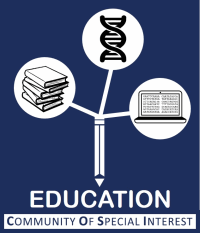 Education-COSI focuses on bioinformatics and computational biology education and training across the life sciences. A major goal of this COSI is to foster a mutually supportive, collaborative community in which bioscientists can share bioinformatics education and training resources and experiences, and facilitate the development of education programs, courses, curricula, etc., and teaching tools and methods.
Education-COSI focuses on bioinformatics and computational biology education and training across the life sciences. A major goal of this COSI is to foster a mutually supportive, collaborative community in which bioscientists can share bioinformatics education and training resources and experiences, and facilitate the development of education programs, courses, curricula, etc., and teaching tools and methods.
Keywords: education, training, training resources, curricula, competencies
Evolution and Comparative Genomics
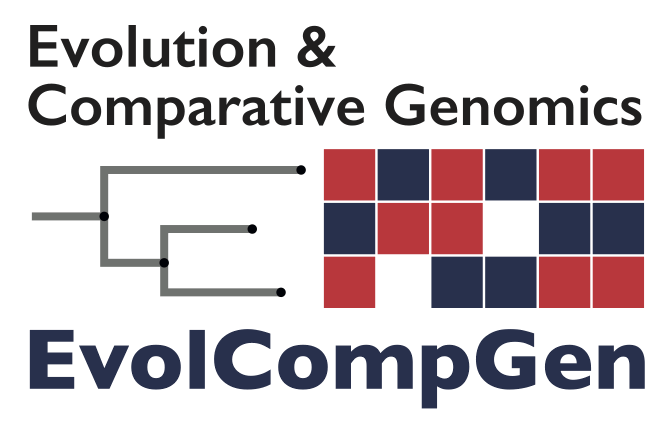
Evolution and comparative genomics are deeply intertwined with computational biology. Computational evolutionary methods, such as phylogenetic inference methods or multiple sequence alignment are widely used, yet remain far from “solved” and are indeed intense areas of research. At the same time, evolutionary and comparative genomics are inherently “transversal” disciplines in that work in many other biological areas of research have some evolutionary component (e.g. cancer genomics, epidemiology, toxicology, population genetics, functional genomics, structural biology just to name a few). The scope of this COSI is intentionally kept broad. The track will feature a mix of proceedings, highlight, and invited talks. Priority will be given to contributions which are relevant to more than a single area of application, or to contributions which are not covered by more specialised COSIs.
Keywords: Evolution, phylogeny, phylogenomics, comparative genomics, genome rearrangements, orthology, paralogy, recombination, lateral gene transfer, genome variation, population genomics, comparative epigenomics, epidemiology, cancer evolution genomics, genome annotation
Function: Protein Function Annotation
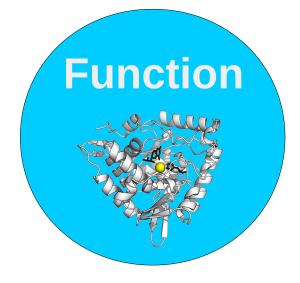 The mission of the Function Community of Special Interest (Function-COSI) is to bring together computational biologists, experimental biologists, biocurators, and others who are dealing with the important problem of gene and gene product function prediction, to share ideas and create collaborations. The Function-COSI holds annual meetings alongside ISMB. Also, we are conducting the multi-year Critical Assessment of protein Function Annotation, or CAFA, experiment.
The mission of the Function Community of Special Interest (Function-COSI) is to bring together computational biologists, experimental biologists, biocurators, and others who are dealing with the important problem of gene and gene product function prediction, to share ideas and create collaborations. The Function-COSI holds annual meetings alongside ISMB. Also, we are conducting the multi-year Critical Assessment of protein Function Annotation, or CAFA, experiment.
Keywords: Protein function prediction, machine learning, performance assessment,
HitSeq: High-throughput Sequencing
 HiTSeq is a community of special interest devoted to the latest advances in computational techniques for the analysis of high-throughput sequencing (HTS) data. Sessions will be devoted to discussing the latest advances in computational techniques for the analysis of high-throughput sequencing (HTS) datasets and will provide a forum for in-depth presentations of the methods and discussions among the academic and industry scientists working in this field. We seek contributions on any topic involving HTS data analysis including: genome assembly and haplotype phasing; transcriptome analysis; genetics and epigenetics variation; metagenomics and microbiome analysis; and new HTS platform data analysis (e.g. synthetic reads, long reads, nanopore). In addition to general sessions, we propose to have two specialized sessions to focus on current hot topics: a) long sequencing and mapping techniques, b) single cell sequencing applications, c) non-linear genome representations. Both of these topics have generated an enormous amount of interest recently.
HiTSeq is a community of special interest devoted to the latest advances in computational techniques for the analysis of high-throughput sequencing (HTS) data. Sessions will be devoted to discussing the latest advances in computational techniques for the analysis of high-throughput sequencing (HTS) datasets and will provide a forum for in-depth presentations of the methods and discussions among the academic and industry scientists working in this field. We seek contributions on any topic involving HTS data analysis including: genome assembly and haplotype phasing; transcriptome analysis; genetics and epigenetics variation; metagenomics and microbiome analysis; and new HTS platform data analysis (e.g. synthetic reads, long reads, nanopore). In addition to general sessions, we propose to have two specialized sessions to focus on current hot topics: a) long sequencing and mapping techniques, b) single cell sequencing applications, c) non-linear genome representations. Both of these topics have generated an enormous amount of interest recently.
Keywords: sequencing, next generation, high throughput, algorithms, assembly, phasing, variation discovery, genotyping, metagenomics, microbiome, long reads, short reads, nanopre, pan-genomes, graph genomes
MICROBIOME

Based on the Critical Assessment of Metagenome Interpretation (CAMI), the COSI supplies users and developers with exhaustive quantitative data about the performance of methods in relevant scenarios. It therefore guides users in the selection and application of methods and in their proper interpretation. Furthermore, the COSI provides a platform for exchange and networking between method developers, and provides valuable information allowing them to identify promising directions for their future work. The MICROBIOME Community of Special Interest aims at the advancement and evaluation of computational methods in microbiome research, especially metaomic approaches.
Keywords: microbiome, genome reconstruction, metagenomics, metatranscriptomics, metaproteomics, microbial networks, microbial traits, symbionts, pathogens, genome-based diagnostics
MLCSB: Machine Learning in Computational and Systems Biology
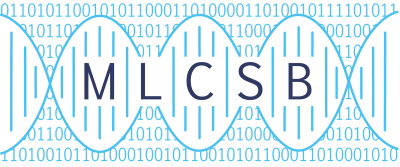 MLCSB is a scientific forum for the exchange between researchers from Systems Biology and Machine Learning, to promote the exchange of ideas, interactions and collaborations between these communities.
MLCSB is a scientific forum for the exchange between researchers from Systems Biology and Machine Learning, to promote the exchange of ideas, interactions and collaborations between these communities.
Molecular biology and all the biomedical sciences are undergoing a true revolution as a result of the emergence and growing impact of a series of new disciplines and tools sharing the -omics suffix in their name. These include in particular genomics, transcriptomics, proteomics and metabolomics, devoted respectively to the examination of the entire systems of genes, transcripts, proteins and metabolites present in a given cell or tissue type. Taking advantage of this wealth of genomic information has become a conditio sine qua non for whoever has the ambition to remain competitive in molecular biology and in the biomedical sciences in general. Machine learning naturally appears as one of the main drivers of progress in this context, where most of the targets of interest deal with complex structured objects: sequences, 2D and 3D structures or interaction networks. At the same time, bioinformatics and systems biology have already induced significant new developments of general interest in machine learning, for example in the context of learning with structured data, graph inference, semi-supervised learning, system identification, and novel combinations of optimization and learning algorithms.
Keywords: Machine Learning, Data Mining, Deep Learning, Artificial Intelligence in Bioinformatics and Computational Biology
NetBio: Network Biology
 As large scale, systems-level data are becoming increasingly available, modeling and analyzing them as networks is widespread. Network Biology Community serves to introduce novel methods and tools, identify best practices and highlight the latest research in the growing and interdisciplinary field of network biology.
As large scale, systems-level data are becoming increasingly available, modeling and analyzing them as networks is widespread. Network Biology Community serves to introduce novel methods and tools, identify best practices and highlight the latest research in the growing and interdisciplinary field of network biology.
Keywords: networks, pathways, systems, network analysis, disease networks, disease pathways
RegSys: Regulatory and Systems Genomics
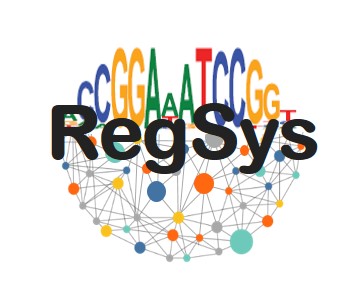 Regulatory genomics involves the study of the genomic control system, which determines how, when and where to activate the blueprint encoded in the genome. Regulatory genomics is the topic of much research activity worldwide. Since computational methods are important in the study of gene regulation, the RegGenCOSI meeting focuses on bioinformatics for regulatory genomics. An important goal of the meeting is to foster a collaborative community wherein scientists convene to solve difficult research problems in all areas of computational regulatory genomics.
Regulatory genomics involves the study of the genomic control system, which determines how, when and where to activate the blueprint encoded in the genome. Regulatory genomics is the topic of much research activity worldwide. Since computational methods are important in the study of gene regulation, the RegGenCOSI meeting focuses on bioinformatics for regulatory genomics. An important goal of the meeting is to foster a collaborative community wherein scientists convene to solve difficult research problems in all areas of computational regulatory genomics.
Keywords:
1. Genomic and epigenomic regulatory elements (transcription factors, enhancers, histones, gene promoters, regulatory motifs, non-coding RNAs, etc.)
2. NGS methods in regulatory genomics (e.g., ChIP-seq, RNA-seq, ATAC-seq)
3. Epigenetics and epitranscriptomics
4. Alternative splicing
5. Regulatory networks and pathway analysis
6. Genetic, molecular, and phenotypic variation in human disease
7. DNA shape
8. Single-cell transcriptomics (and other single cell assays)
9. 3D genomics (e.g., Hi-C and ChIA-PET)
10. Regulatory evolution or comparative regulatory genomics
RNA: Computational RNA Biology
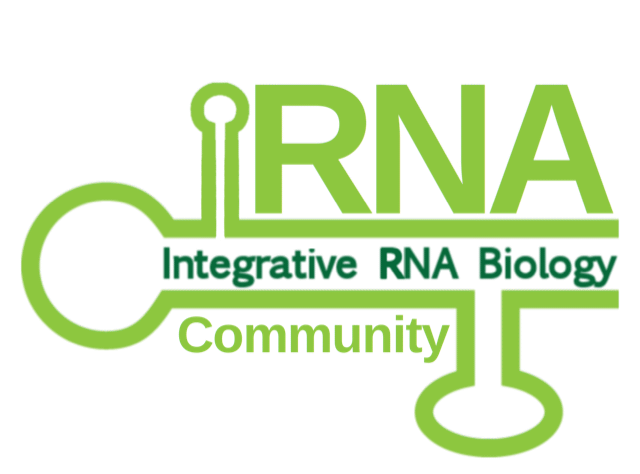
RNA track covers the full range of research topics in the field of RNA Biology, from computational and high-throughput experimental methods development to their application in different aspects of RNA processing, structure, and function. The goal of the Computational RNA Biology session is to bring together experts in computational and experimental aspects of research in RNA Biology to cover new developments across this broad field of research. The meeting focuses on two major areas: (1) the development of computational and high-throughput experimental methods, and (2) the application of such methods to break new grounds in the study of RNA biology and disease. We aim to educate and inspire researchers in the field, novice and seasoned alike, by meshing together different aspects of Computational RNA Biology, and promoting cross-disciplinary collaborative research.
Keywords: Transcriptomics, RNA processing, post-transcriptional regulation, non-coding RNA, RNA 2D/3D structure, alternative-splicing, alternative polyadenylation, RNA translation degragation and localization, genetic variants effect on RNA processing, RNA and disease.
SysMod: Computational Modeling of Biological Systems
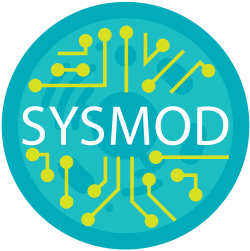
The Computational Modeling of Biological Systems (SysMod) aims to create a forum for systems modelers and bioinformaticians to discuss common research questions and methods. The session will focus on the conjoint use of mathematical modeling and bioinformatics to understand biological systems functions and dysfunctions. The meeting is open to the full range of methods used in systems modeling, including qualitative and quantitative modeling, dynamical and steady-state modeling, as well all applications of systems modeling including basic science, bioengineering, and medicine.
Keywords: computational modeling, constraint-based models, logical models, kinetic models, multi-scale models
TransMed: Translational Medical Informatics
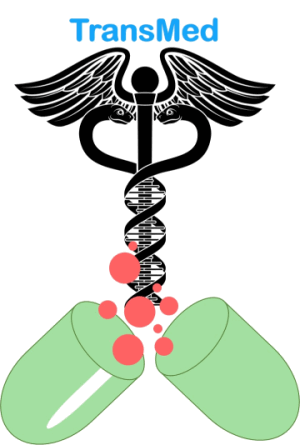 TransMed covers the current developments in the field of clinical and translational medicine informatics. Analysis of large amounts of multi-omics, imaging (medical and molecular), mobile sensor, clinical and health records data is paving the way for precision medicine. In the TransMed track, we will explore the current status of computational biology and advance machine learning approaches within the field of clinical and translational medicine.
TransMed covers the current developments in the field of clinical and translational medicine informatics. Analysis of large amounts of multi-omics, imaging (medical and molecular), mobile sensor, clinical and health records data is paving the way for precision medicine. In the TransMed track, we will explore the current status of computational biology and advance machine learning approaches within the field of clinical and translational medicine.
Keywords: Translational medicine; clinical and ‘omics data integration; curation and harmonization; stratification of patients; informatics for integrating biology and the bedside; medical informatics; ontology-driven data representation; patient centered outcomes research; cohort data; deep learning
VarI: Variant Interpretation
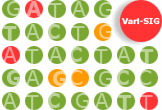
VarI-COSI track discusses the recent advances in the methodology for the annotation and analysis of genetic variants. The VarI-COSI meeting is dedicated to the recent advances in the analysis and interpretation of the genetic variants. The meeting aims to organize a research network (VarI-COSI) facilitating the exchange of ideas and the establishment of new collaborations between researchers with different expertise. The VarI-COSI meeting is broadly divided in two sessions (“Genetic variants as markers: evolution, populations, GWAS” and “Genetic variants as effectors: function, structure, and regulation”) that encompass the four major research topics of the field: 1) Databases, data mining algorithms and visualization tools for variants analysis. 2) Methods for predicting regulatory/structural/functional impacts of SNVs. 3) Personal Genomics, GWAS studies and SNV prioritization. 4) Population genomics and phylogenetic analysis.

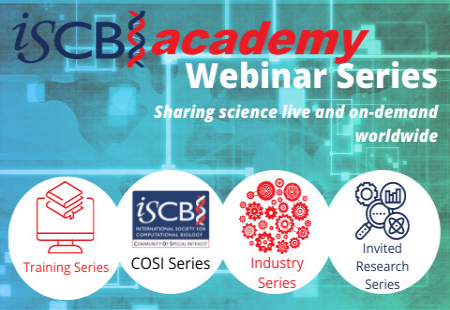

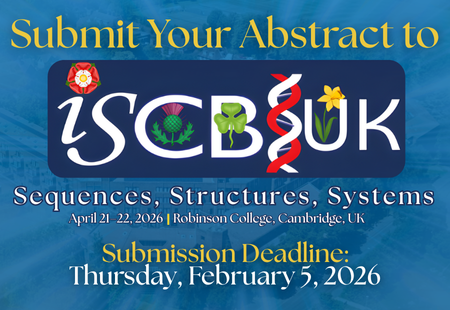
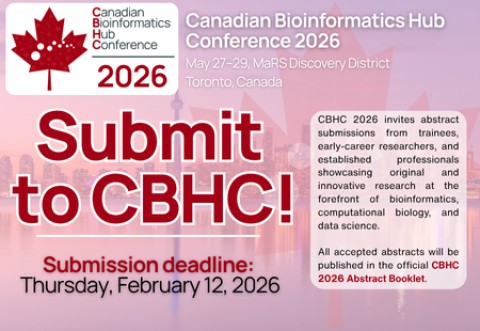
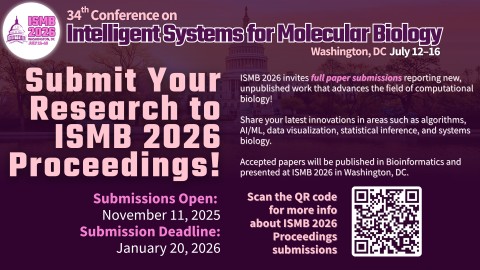



















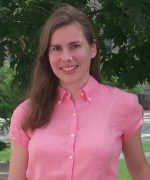
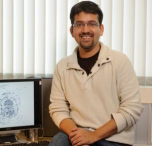





 The CAMDA track highlights and compares the latest methods and results in an international data analysis contest, with this year's topics including: (1) a meta-genomics forensic challenge in constructing urban microbiome fingerprints and identifying the geographical origin of mystery samples (MetaSUB), 2) a CMap drug safety challenge in comparing / integrating responses of multiple cell lines for predicting drug induced liver injury in humans (FDA), and 3) a cancer data-integration challenge in demonstrating a robust analysis approach improving the state of the art for multiple cancer types (FDA SEQC / Metabric)
The CAMDA track highlights and compares the latest methods and results in an international data analysis contest, with this year's topics including: (1) a meta-genomics forensic challenge in constructing urban microbiome fingerprints and identifying the geographical origin of mystery samples (MetaSUB), 2) a CMap drug safety challenge in comparing / integrating responses of multiple cell lines for predicting drug induced liver injury in humans (FDA), and 3) a cancer data-integration challenge in demonstrating a robust analysis approach improving the state of the art for multiple cancer types (FDA SEQC / Metabric)
 Education-COSI focuses on bioinformatics and computational biology education and training across the life sciences. A major goal of this COSI is to foster a mutually supportive, collaborative community in which bioscientists can share bioinformatics education and training resources and experiences, and facilitate the development of education programs, courses, curricula, etc., and teaching tools and methods.
Education-COSI focuses on bioinformatics and computational biology education and training across the life sciences. A major goal of this COSI is to foster a mutually supportive, collaborative community in which bioscientists can share bioinformatics education and training resources and experiences, and facilitate the development of education programs, courses, curricula, etc., and teaching tools and methods.
 The mission of the Function Community of Special Interest (Function-COSI) is to bring together computational biologists, experimental biologists, biocurators, and others who are dealing with the important problem of gene and gene product function prediction, to share ideas and create collaborations. The Function-COSI holds annual meetings alongside ISMB. Also, we are conducting the multi-year Critical Assessment of protein Function Annotation, or CAFA, experiment.
The mission of the Function Community of Special Interest (Function-COSI) is to bring together computational biologists, experimental biologists, biocurators, and others who are dealing with the important problem of gene and gene product function prediction, to share ideas and create collaborations. The Function-COSI holds annual meetings alongside ISMB. Also, we are conducting the multi-year Critical Assessment of protein Function Annotation, or CAFA, experiment. HiTSeq is a community of special interest devoted to the latest advances in computational techniques for the analysis of high-throughput sequencing (HTS) data. Sessions will be devoted to discussing the latest advances in computational techniques for the analysis of high-throughput sequencing (HTS) datasets and will provide a forum for in-depth presentations of the methods and discussions among the academic and industry scientists working in this field. We seek contributions on any topic involving HTS data analysis including: genome assembly and haplotype phasing; transcriptome analysis; genetics and epigenetics variation; metagenomics and microbiome analysis; and new HTS platform data analysis (e.g. synthetic reads, long reads, nanopore). In addition to general sessions, we propose to have two specialized sessions to focus on current hot topics: a) long sequencing and mapping techniques, b) single cell sequencing applications, c) non-linear genome representations. Both of these topics have generated an enormous amount of interest recently.
HiTSeq is a community of special interest devoted to the latest advances in computational techniques for the analysis of high-throughput sequencing (HTS) data. Sessions will be devoted to discussing the latest advances in computational techniques for the analysis of high-throughput sequencing (HTS) datasets and will provide a forum for in-depth presentations of the methods and discussions among the academic and industry scientists working in this field. We seek contributions on any topic involving HTS data analysis including: genome assembly and haplotype phasing; transcriptome analysis; genetics and epigenetics variation; metagenomics and microbiome analysis; and new HTS platform data analysis (e.g. synthetic reads, long reads, nanopore). In addition to general sessions, we propose to have two specialized sessions to focus on current hot topics: a) long sequencing and mapping techniques, b) single cell sequencing applications, c) non-linear genome representations. Both of these topics have generated an enormous amount of interest recently.
 MLCSB is a scientific forum for the exchange between researchers from Systems Biology and Machine Learning, to promote the exchange of ideas, interactions and collaborations between these communities.
MLCSB is a scientific forum for the exchange between researchers from Systems Biology and Machine Learning, to promote the exchange of ideas, interactions and collaborations between these communities. As large scale, systems-level data are becoming increasingly available, modeling and analyzing them as networks is widespread. Network Biology Community serves to introduce novel methods and tools, identify best practices and highlight the latest research in the growing and interdisciplinary field of network biology.
As large scale, systems-level data are becoming increasingly available, modeling and analyzing them as networks is widespread. Network Biology Community serves to introduce novel methods and tools, identify best practices and highlight the latest research in the growing and interdisciplinary field of network biology. Regulatory genomics involves the study of the genomic control system, which determines how, when and where to activate the blueprint encoded in the genome. Regulatory genomics is the topic of much research activity worldwide. Since computational methods are important in the study of gene regulation, the RegGenCOSI meeting focuses on bioinformatics for regulatory genomics. An important goal of the meeting is to foster a collaborative community wherein scientists convene to solve difficult research problems in all areas of computational regulatory genomics.
Regulatory genomics involves the study of the genomic control system, which determines how, when and where to activate the blueprint encoded in the genome. Regulatory genomics is the topic of much research activity worldwide. Since computational methods are important in the study of gene regulation, the RegGenCOSI meeting focuses on bioinformatics for regulatory genomics. An important goal of the meeting is to foster a collaborative community wherein scientists convene to solve difficult research problems in all areas of computational regulatory genomics.

 TransMed covers the current developments in the field of clinical and translational medicine informatics. Analysis of large amounts of multi-omics, imaging (medical and molecular), mobile sensor, clinical and health records data is paving the way for precision medicine. In the TransMed track, we will explore the current status of computational biology and advance machine learning approaches within the field of clinical and translational medicine.
TransMed covers the current developments in the field of clinical and translational medicine informatics. Analysis of large amounts of multi-omics, imaging (medical and molecular), mobile sensor, clinical and health records data is paving the way for precision medicine. In the TransMed track, we will explore the current status of computational biology and advance machine learning approaches within the field of clinical and translational medicine.




